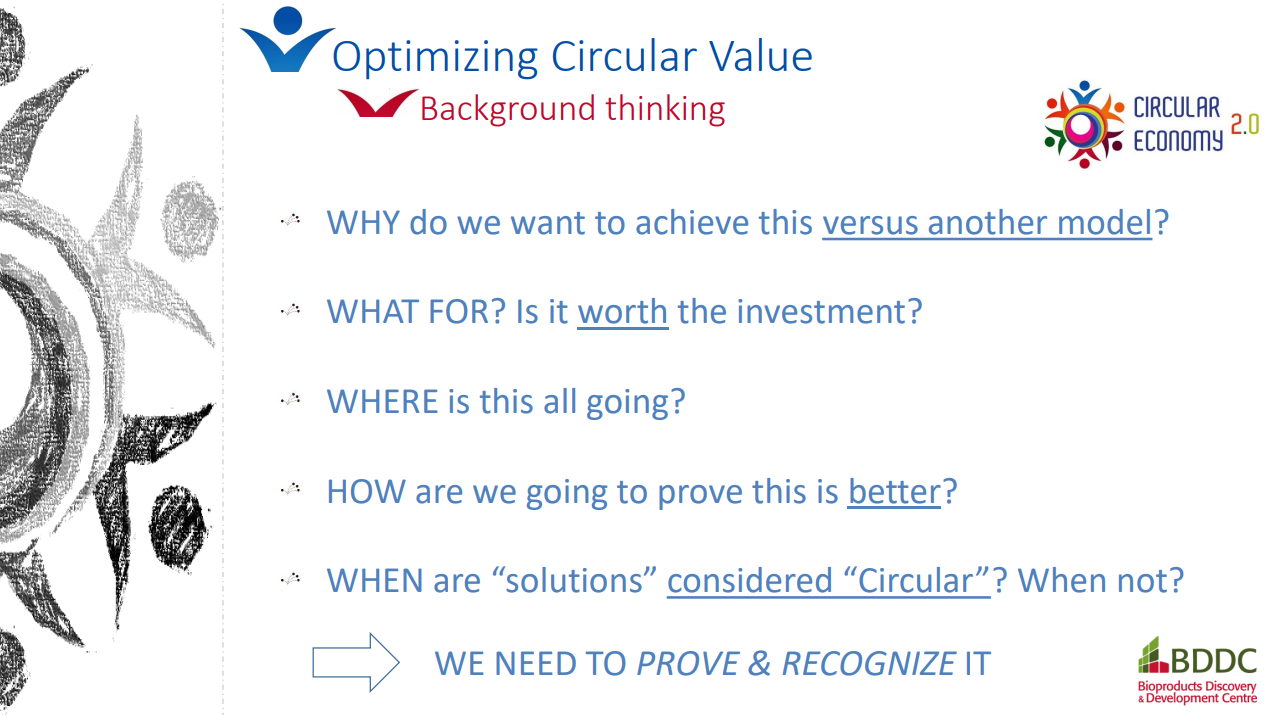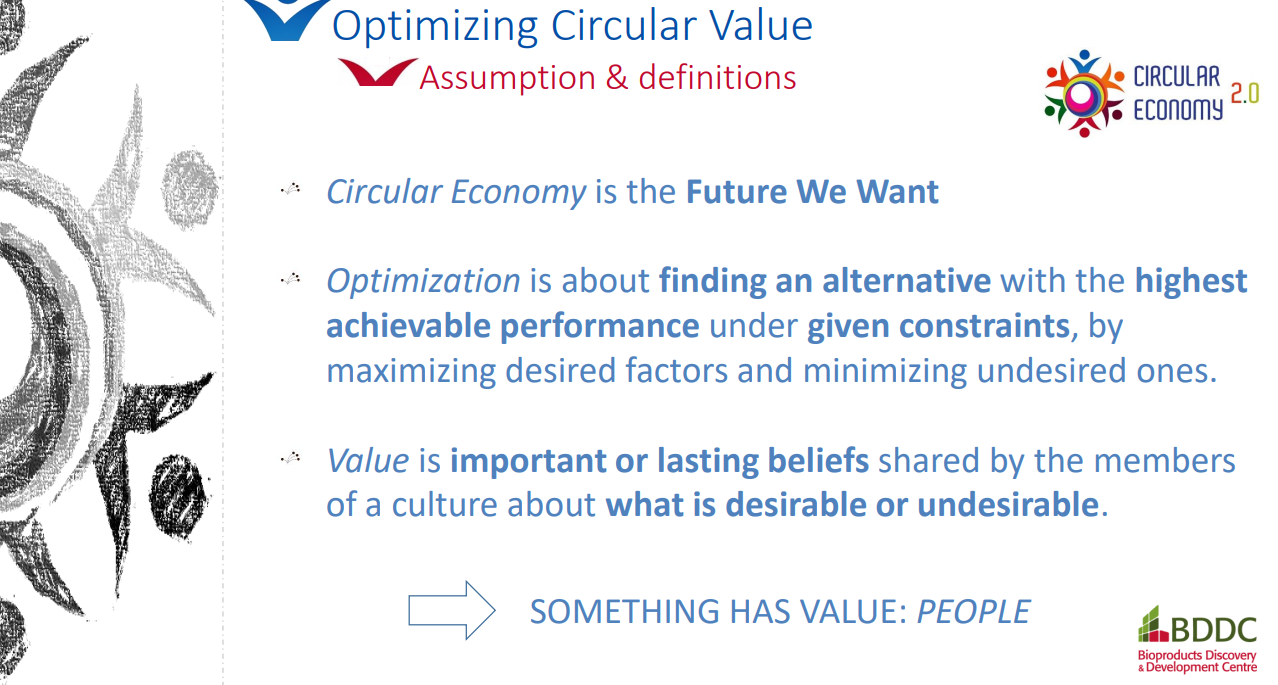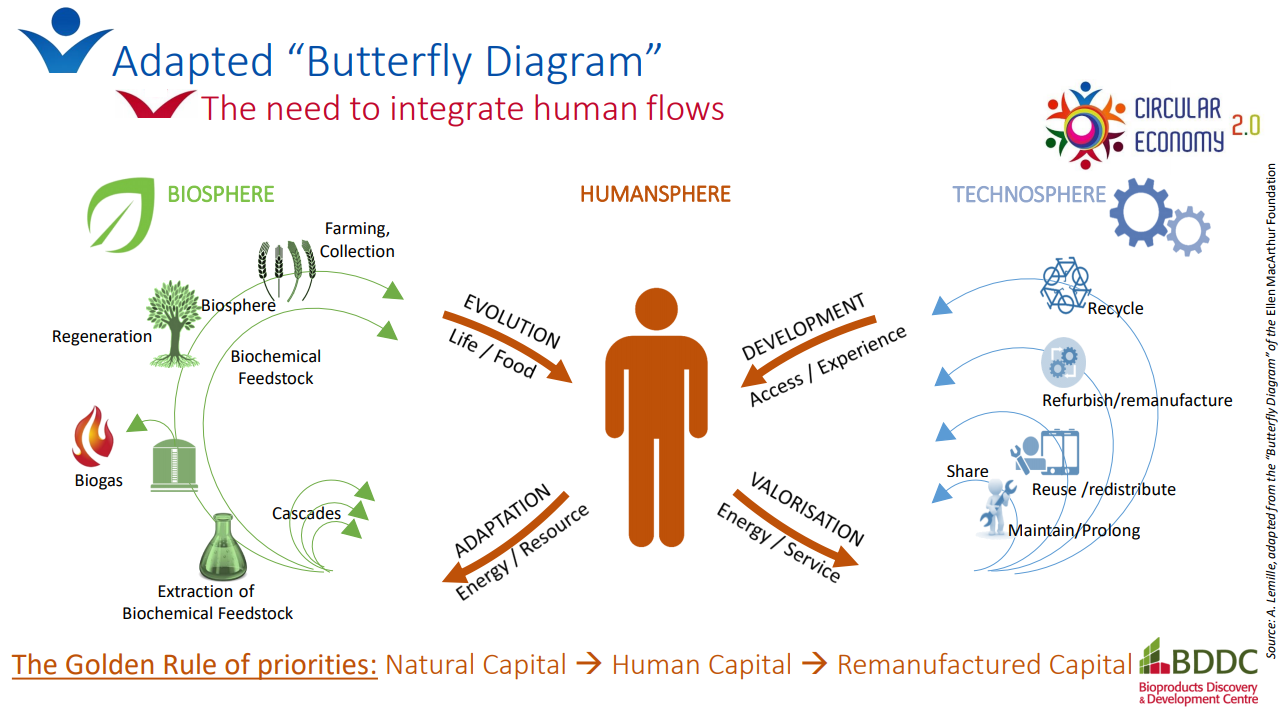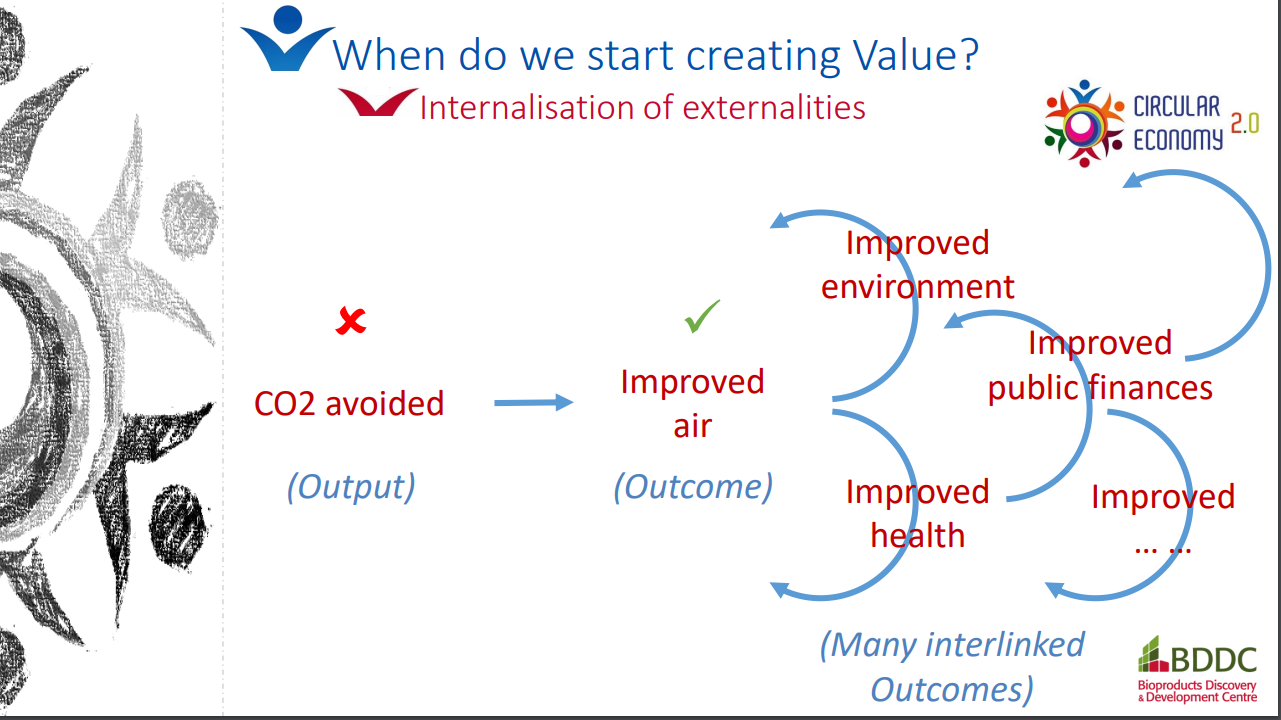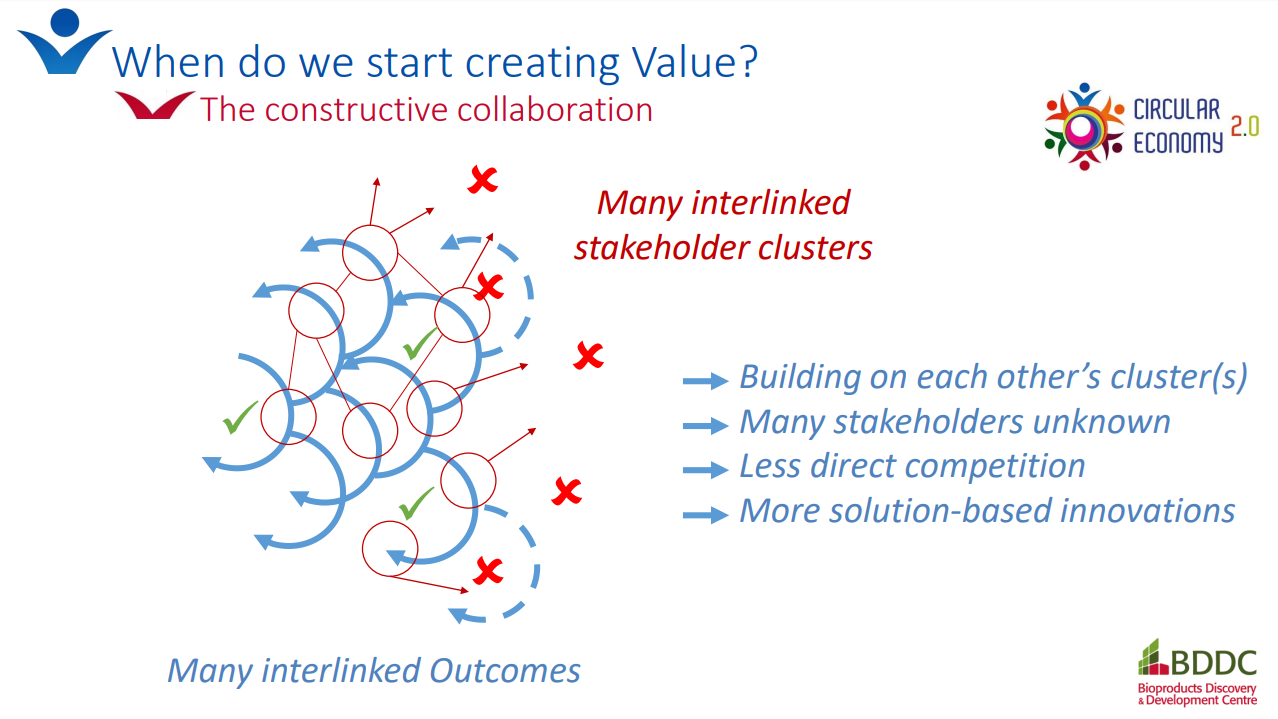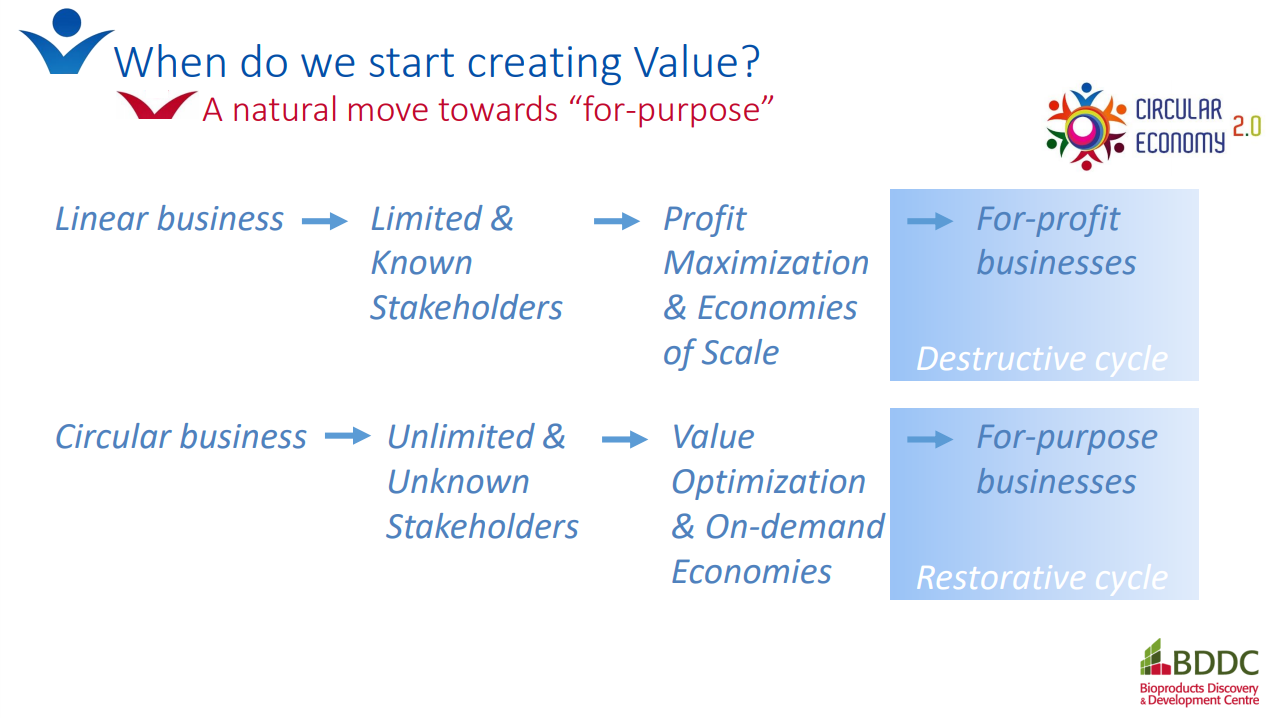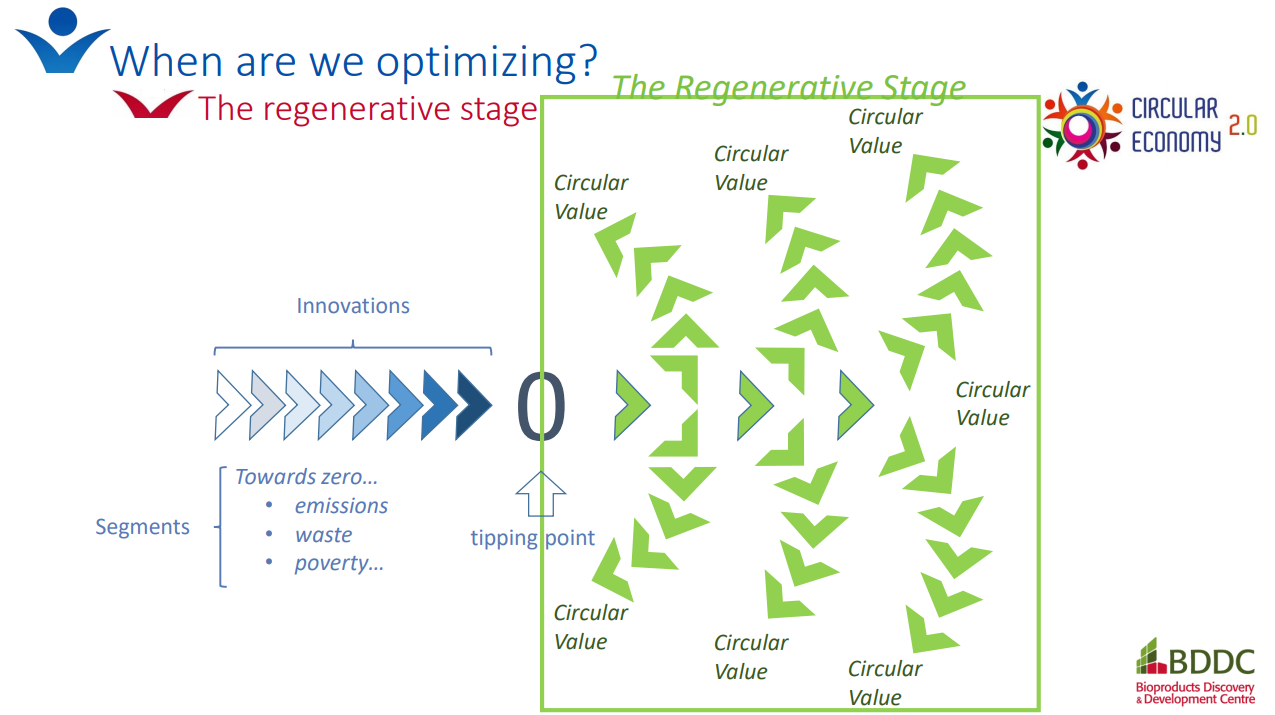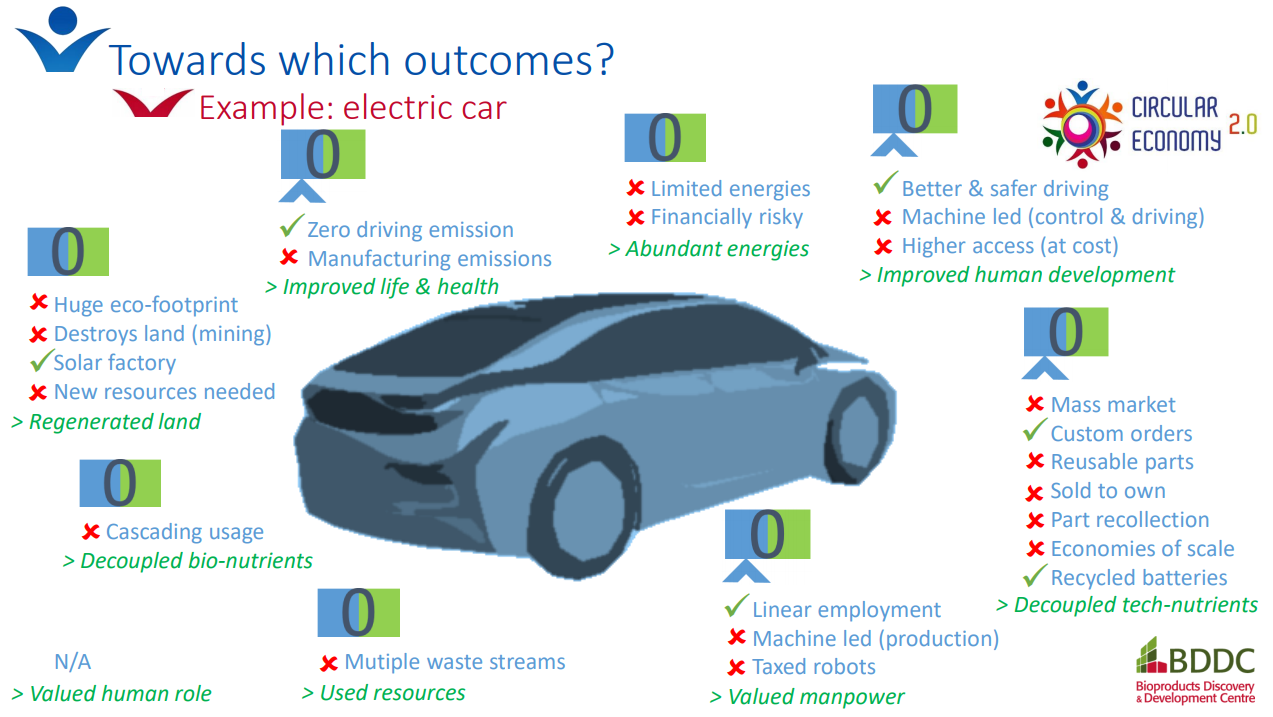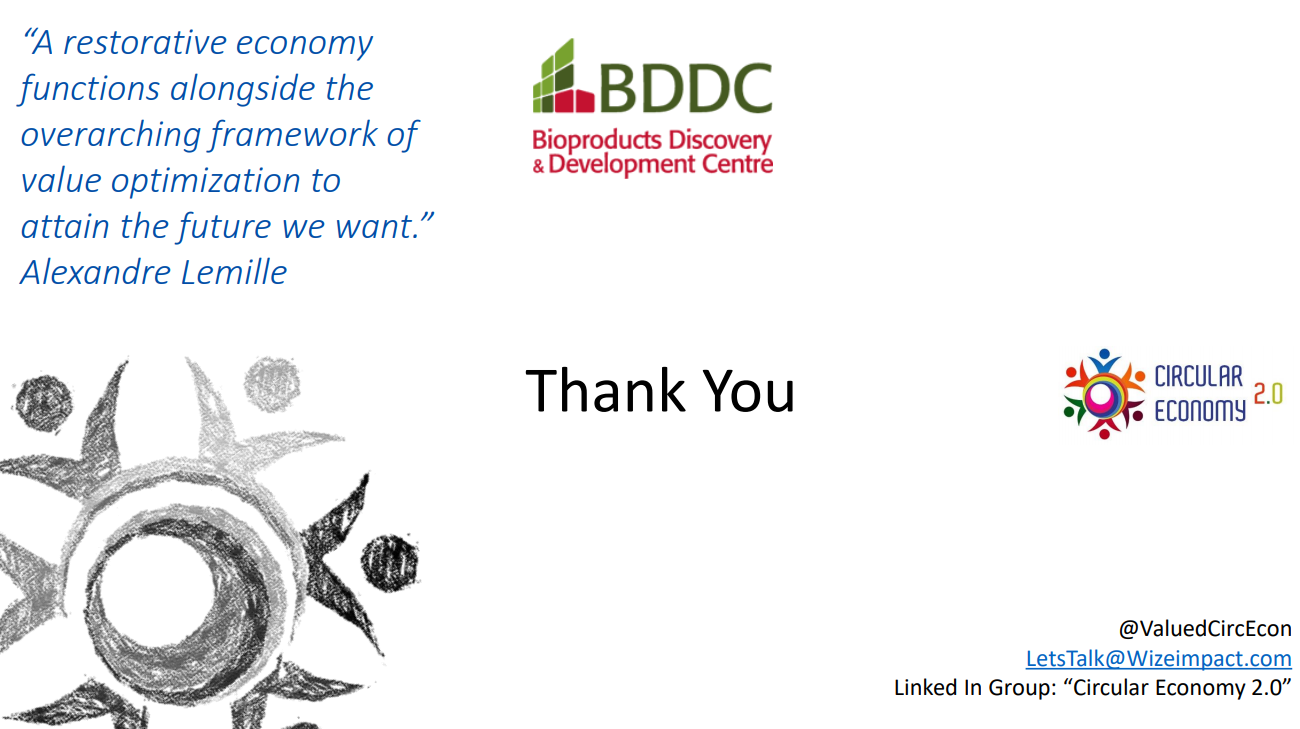OPTIMIZING CIRCULAR VALUE
Optimizing Value ... an approach articulated by Alexandre Lemille
|
|
#1 ... Optimizing Circular Value
|
Sub-title
Text
|
|
#2 ... Optimizing Circular Value: Background Thinking
|
Sub-title
Text
|
|
#3 ... Optimizing Circular Value: Assumptions and Definitions
|
Sub-title
Text
|
|
#4 ... Adapted 'Butterfly Diagram: The Need to Integrate Human Flows!
|
Sub-title
Text
|
|
#5 ... When Do We Start Creating Value? ... Internalisation of Externalities!
|
Sub-title
Text
|
|
#6 ... When Do We Start Creating Value? ... Constructive Collaboration!
|
Sub-title
Text
|
|
#7 ... When Do We Start Creating Value? ... Move Towards 'for purpose'!
|
Sub-title
Text
|
|
#8 ... When Are We Optimizing? The Regeneratice Stage.
|
Sub-title
Text
|
|
#9 ... When Are We Optimizing? Priority Outcomes!
|
Sub-title
Text
|
|
#10 ... Towards Which Outcomes?
|
Sub-title
Text
|
|
#11 ... Towards Well-Being for All
|
Sub-title
Text
|
|
#12 ... Thank You
|
Sub-title
Text
|
Peter Burgess COMMENTARY
I archived this material from Alexandre Lemille probably about 15 years ago. Looking at it again a long time later, I understand a lot better now why is is that the progress towards a 'better world' is so difficult and so slow.
Everything in the Lemille presentation is OK ... in fact better than OK, it is very good.
I see the problem of very slow progress towards a better world as being mainly contextual. This very good idea about a circular economy is going up against a world where most of those with power and influence in the global economy are workding from a very different playbook ... a playbook that is all about financial profit and owners accumulating wealth as fast as possible ... and one must add, not caring at all about the broader impact on society and the environment!
I trained as a Chartered Accountant in the 1960s when this training was arguably the best training there was for senior management in the corporate world ... long before elite business schools became the locus for this type of training ... and it is obvious to me that while business training of the 1960s was reasonably in line with the needs of the time, the business training for the last forty years has been getting less and less 'fit-for-purpose'. So much so, that the accountancy profession has become almost totally out-of-touch with the world outside the walls of the corporate enterprise.
I came into 'accountancy' after studying engineering and economics in an academic setting and taking part in a 2 year long 'industrial management training' program that alerted me to the gap between that was talked about in the 'ivory towers' of academia and the real world of sweat and tears in the industrial world of production and making payroll. At the time, accountancy was the best 'bridge' between business analysis and engineering and technical possibilities ... but quite primitive.
Peter Burgess
| | The text being discussed is available at
| |


